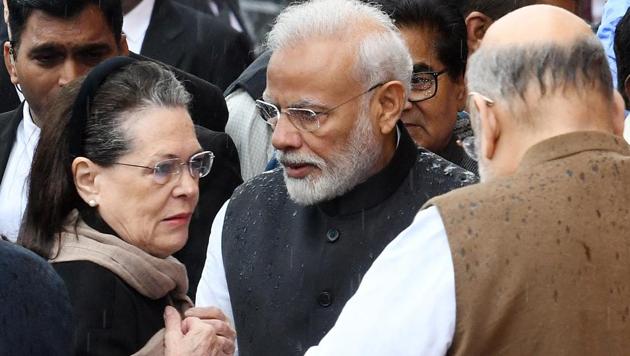
At a public event in Maharashtra, Shah mocked Sonia Gandhi's statement by making a reference to the notorious "Rahul plane," implying that the Congress leader's family, particularly Sonia Gandhi's son, Rahul, had long been associated with controversial and repeated mismanagement. By bringing up an alleged incident involving Rahul Gandhi’s flight and its supposed association with mishaps, Shah aimed to undermine the credibility of the Congress leadership.
The reference sparked immediate political fallout, with Congress leaders condemning Shah’s comments as an attack on the dignity of the Gandhi family. In a statement, Congress spokespersons argued that Shah’s rhetoric was an attempt to deflect from larger issues concerning governance and public safety, especially in the wake of multiple incidents affecting citizens in Maharashtra.
Shah's provocative jibe was not without its purpose. He has consistently used direct and often combative language to weaken his political rivals, particularly the Congress party, in a bid to consolidate support for the ruling Bharatiya Janata Party (BJP). His attack on the Congress leadership over air safety seems to align with his broader strategy of projecting the BJP as a party of progress and reliability, while framing the opposition as a party marred by incompetence.
This incident, while sharply political, highlights the ongoing tensions between India’s two major political factions as they prepare for future elections. The ruling BJP has long accused Congress of being mired in corruption, mismanagement, and outdated policies, while Congress continues to challenge the BJP over issues ranging from economic inequality to religious and communal tensions.
Meanwhile, Maharashtra’s political landscape remains turbulent. With several state-level challenges and governance issues cropping up, both the ruling Shiv Sena faction and the opposition are gearing up for fierce political contests in the state. The exchange between Shah and Gandhi is expected to further fuel an already charged atmosphere, with both sides eager to secure a significant foothold ahead of state elections.
Maharashtra has been a focal point for political battles, not just between the national parties but also among regional players. The Shiv Sena has been embroiled in its internal conflicts, while other parties have been aligning with either Congress or BJP, deepening the divide. For many in Maharashtra, the ongoing political rhetoric from both sides is as much about addressing governance concerns as it is about securing electoral advantage.
This latest jab from Shah also highlights his strategy of targeting the Congress leadership for its handling of key issues, including governance failures that have persisted in various sectors. With Sonia Gandhi positioned as one of the prominent faces of the Congress, Shah's attacks are calculated to disrupt the credibility of the party’s leadership, particularly as Congress seeks to rally around Rahul Gandhi in the run-up to upcoming elections.
Shah’s remarks come at a time when the national focus is on key policy decisions and electoral strategies, with parties vying for public support in an increasingly polarized environment. In this context, such remarks are meant to strike a chord with voters who are dissatisfied with the opposition’s ability to bring about effective leadership and accountability.
The incident underscores the growing divide between political factions in India, particularly as both the BJP and Congress work to appeal to their respective bases. With growing concerns over governance, economic policies, and civil rights, these exchanges between party leaders serve to amplify existing narratives that shape public perception.
